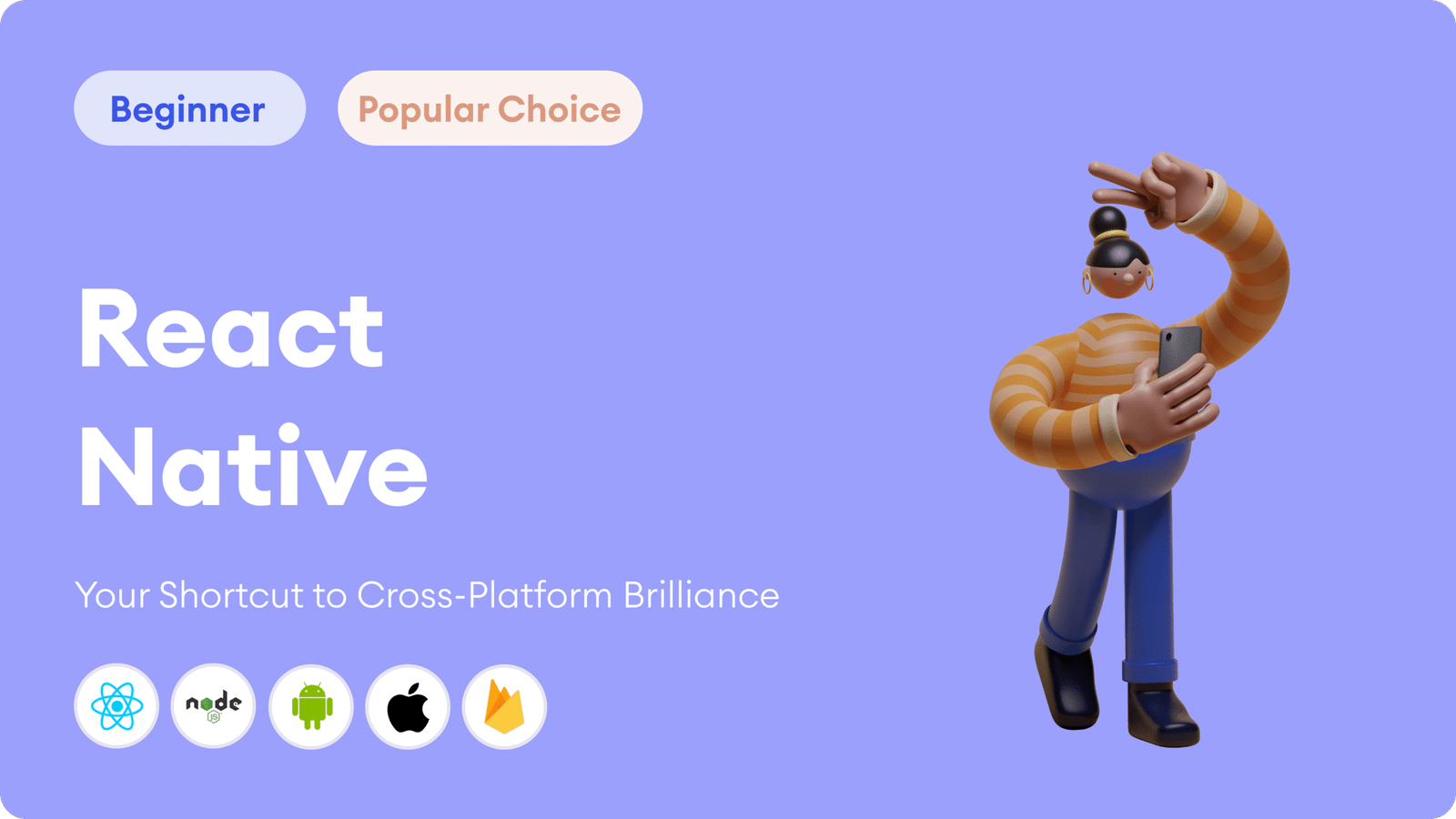- Artificial Intelligence
- Artificial Intelligence & Machine Learning
- Basics of Computer
- Cross-Platform Development
Category Submenu Items
- Cyber Security
Category Submenu Items
- Data Science & Analytics
- Data Structures and Algorithms
- Digital Marketing
- DSA
- Foundational & Soft Skills
- Interview
- Mobile App Development
Category Submenu Items
- Programming Languages
- Resume Writing
- Software Testing & Quality Assurance
- Web Design and Development
Category Submenu Items
Our Top Courses
Artificial Intelligence & Machine Learning
Mobile App Development using React Native
Mobile Application Development With Flutter
Cyber Security
- Artificial Intelligence
- Artificial Intelligence & Machine Learning
- Basics of Computer
- Cross-Platform Development
- Cyber Security
- Data Science & Analytics
- Data Structures and Algorithms
- Digital Marketing
- DSA
- Foundational & Soft Skills
- Interview
- Mobile App Development
- Programming Languages
- Resume Writing
- Software Testing & Quality Assurance
- Web Design and Development
Shopping cart
Artificial Intelligence & Machine Learning
- Last Updated: May 15, 2025
- Telugu, English

About Course
This Artificial Intelligence & Machine Learning course provides a beginner-friendly yet comprehensive introduction to the core concepts and practical techniques of AI. The journey begins with foundational knowledge—understanding what AI is, how search spaces work, and implementing basic search algorithms like Breadth-First Search (BFS) and Depth-First Search (DFS). As the course progresses, students dive into heuristic-based approaches such as A*, followed by building rule-based systems for intelligent decision-making.
The course then shifts toward probabilistic reasoning through Bayes’ Theorem and introduces basic machine learning techniques like linear regression and the perceptron. Students are guided through neural network fundamentals, using Keras to build and train simple models. Key challenges such as overfitting and regularization are addressed to help develop reliable AI systems.
Alongside technical depth, the course incorporates critical discussions on AI ethics, bias, and fairness—ensuring learners are equipped to build responsible AI. Students explore the foundations of Natural Language Processing (NLP), including tokenization and building a simple rule-based chatbot. Evaluation metrics are introduced to assess model performance effectively.
The latter part of the course is hands-on and project-driven, starting with a capstone proposal and guiding students through dataset preparation, model training and tuning, and performance visualization. Special focus is placed on identifying and mitigating bias, ensuring fairness in outputs. Finally, students prepare a user guide and present a working AI project in the capstone demo.
By the end of the course, students will have both the theoretical understanding and practical skills to build, evaluate, and present basic AI models confidently—laying a strong foundation for further exploration in the field.
Benefits of the course
- Learns fundamental concepts of Artificial Intelligence
- Gains practical skills in AI development
- Understands ethical considerations in AI
- Explores search algorithms and their applications
- Learns machine learning techniques and workflows
- Understands neural networks and how they function
- Gets introduced to natural language processing (NLP)
- Practices model evaluation and performance metrics
- Learns bias detection and mitigation strategies
- Develops and presents a complete AI project
Course Content
-
What is Artificial Intelligence?
-
Types of AI: Narrow, General, Super AI
-
Intelligent Agents and Environments
-
Understanding State and Search Spaces
-
Introduction to Search Algorithms
-
Breadth-First Search (BFS): Strategy and Implementation
-
Depth-First Search (DFS): Strategy and Implementation
-
Comparing BFS and DFS (Time, Space, Completeness)
-
Introduction to Heuristic Functions
-
Greedy vs. Informed Search
-
A* Algorithm: Logic and Structure
-
Real-World Applications of A*
-
What Are Rule-Based Systems?
-
IF-THEN Rules and Rule Chaining
-
Inference Engines
-
Building Simple Rule-Based Logic
-
Basics of Probability in AI
-
Conditional Probability and Independence
-
Bayes’ Theorem Explained
-
Applying Bayes in AI Classification
-
Introduction to Regression in AI
-
Linear Regression: Concept and Implementation
-
Perceptron Algorithm: Structure and Use
-
Comparing Regression and Perceptron for Learning
-
Introduction to Artificial Neural Networks
-
Layers: Input, Hidden, Output
-
Activation Functions (ReLU, Sigmoid)
-
Forward Pass and Backpropagation Basics
-
Setting Up a Keras Project
-
Defining Models with Keras Sequential API
-
Adding Layers, Compiling, and Fitting
-
Monitoring Model Training
-
What Is Overfitting in AI Models?
-
Techniques to Reduce Overfitting
-
L1, L2 Regularisation
-
Dropout Layers in Neural Networks
-
Ethical Concerns in AI Development
-
Understanding Algorithmic Bias
-
Fairness in Model Predictions
-
Real-World Examples of Ethical AI Failures
-
Introduction to Natural Language Processing
-
Tokenisation: Word and Sentence Splitting
-
Stopword Removal and Preprocessing
-
Basic Text Representations
-
Designing a Chatbot Flow
-
Rule-Matching and Response Generation
-
Keyword-Based Pattern Matching
-
Building a Simple Chatbot in Python
-
Accuracy, Precision, Recall, F1-Score
-
Confusion Matrix Interpretation
-
ROC Curves and AUC
-
Choosing the Right Metric for the Task
-
Defining the Project Objective
-
Selecting the Right AI Technique
-
Planning Dataset and Features
-
Outlining Evaluation Goals
-
Collecting or Sourcing Data
-
Data Cleaning and Preprocessing
-
Feature Selection and Transformation
-
Splitting Data into Training/Test Sets
-
Training AI/ML Models on Prepared Data
-
Hyperparameter Tuning
-
Cross-Validation Techniques
-
Using Callbacks and Early Stopping
-
Analyzing Model Performance
-
Plotting Training Curves
-
Visualizing Confusion Matrix and Metrics
-
Presenting Insights from Model Output
-
Identifying Bias in Datasets and Models
-
Tools and Frameworks for Fairness Checking
-
Techniques to Mitigate Bias (Resampling, Reweighting)
-
Auditing Model Decisions
-
Writing Clear Documentation for Your AI Project
-
Explaining Features, Usage, and Limitations
-
Visuals and Diagrams for Non-Technical Users
-
Creating a Deployment or Usage Guide
-
Presenting the Final AI Model
-
Explaining Model Logic and Results
-
Live Demonstration of Outputs
-
Collecting Feedback and Reflecting on the Project
Instructor
Skillfused is an emerging digital learning platform dedicated to empowering learners with industry-relevant IT skills. From beginner-friendly courses to advanced developer tracks, Skillfused offers hands-on, practical training across web development, mobile app development, data science, QA testing, and more. Each course is crafted by experienced professionals to ensure real-world application, job readiness, and learner success.
- Update:May 15, 2025
- Lectures80
- Skill LevelBeginner
- LanguageTelugu, English
- Course Duration: 35h
Your Instructors
Skillfused
Course Creator
Skillfused is an emerging digital learning platform dedicated to empowering learners with industry-relevant IT skills. From beginner-friendly courses to advanced developer tracks, Skillfused offers hands-on, practical training across web development, mobile app development, data science, QA testing, and more. Each course is crafted by experienced professionals to ensure real-world application, job readiness, and learner success.
- 0 Courses
- 0 Reviews
- 0 Students
- 0 Courses
- 9 Reviews
- 0 Students
Requirements
- Basic computer literacy is required
- A laptop or desktop with internet access
- No prior programming experience needed
- Regular attendance in online classes via Google Meet
- Active participation in discussions and activities
- Completion of assignments and project work
- Willingness to learn and explore AI concepts
- Maintain academic honesty during evaluations
Target Audience
- Designed for beginners and students interested in AI and ML
- Suitable for early professionals exploring AI applications
- No prior coding experience required
- Ideal for those pursuing careers in data science or software development
- Useful for aspiring AI researchers and practitioners
- Great for anyone seeking practical AI skills
- Relevant for learners wanting to understand ethical AI development
- Suitable for academic, personal, or professional upskilling in AI
More Course By Skillfused
Mobile App Development using React Native
- 88 Lessons
- 0 Students
This comprehensive course teaches you how to build cross-platform mobile…
Mobile Application Development With Flutter
- 60 Lessons
- 0 Students
This Flutter (Beginner) course provides a complete, hands-on introduction to…
Cyber Security
- 20 Lessons
- 0 Students
🛡️ Cyber Security In today’s digital-first world, cyber security is…


